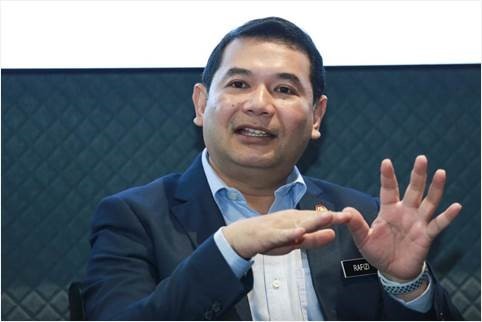
Malaysia has a sizeable presence in the electrical and electronic (E&E sector), which contributes about 8 percent of the nation’s gross domestic product (GDP) or approximately RM143 billion annually.
However, the Malaysian Economy Minister Rafizi Ramli said that the country’s semiconductor industry must diversify and go beyond its heavy reliance on multinational corporations and manufacturing capabilities to secure its position in the global market, especially in the face of potential disruptions.
Speaking at the Malaysia Semiconductor Recruitment Day 2024, Rafizi emphasized the need for a more dynamic ecosystem that includes startups, innovative tech pioneers and a blend of venture capital and private equity (PE) to drive growth.
“It is obvious that Malaysia sits attractively in the global semiconductor and artificial intelligence (AI) scene. (But) this position is not guaranteed. It is a very competitive and dynamic environment and with the rise of de-risking and China+1 strategies, the landscape has fundamentally shifted,” he said.
Adding to that, Rafizi said the challenge has been shifting up the value chain from backend processes to front-end operations, transitioning from assembly and testing to designing chips.
He said that when it comes to integrated circuit (IC) design), it requires different kinds of people, different types of risk profiles and requires different kinds of funding and business models – which is why venture capital and PE firms are needed.
Rafizi also pointed out that the industry’s demand for engineers will also continue to grow.
“I think they estimated that we need around 60,000 engineers and that is why government departments, agencies, private sectors and the universities are working together to ensure we can meet this demand,” he said.
Rafizi announced that 7 firms have joined the IC Design Park in Puchong within 5 months, creating about 600 jobs in front-end chip design, with plans to attract 15 more foreign companies that have shown strong interest in the park.
“If we can sustain this momentum, we should be able to meet the target of onboarding 20,000 high-skilled professionals,” he said.
Companies optimistic on semiconductor outlook in 4Q
Additionally, the Malaysia Semiconductor Industry Association (MSIA) revealed that 53 percent of companies in the E&E and semiconductor sectors are optimistic about the business outlook for 4Q24.
This is based on the association’s E&E/Semiconductor Quarterly Pulse Survey for 3Q outlook indicated a continued positive sentiment, although it is lower compared to the 60 percent optimism reported in 2Q for 3Q.
The report stated that 53 percent of companies are optimistic about their investment outlook for 4Q, representing a marginal decline from 58 percent in 2Q.
It was also revealed that 71 percent of companies are hiring engineers and technicians in 4Q, reflecting strong hiring activity despite a slight reduction from the 85 percent hiring sentiment seen in 2Q.
MSIA said 46 percent of companies reported improved business performance in 3Q compared to 2Q, up from 39 percent in the previous quarter, as this signals a positive trajectory despite slightly moderated optimism across the industry.
Its president Datuk Seri Wong Siew Hai said that the 3Q survey results reflects the resilience and adaptability of Malaysia’s semiconductor industry, despite global uncertainties and emerging challenges as companies remain committed to growth, innovation and investment.
“To continue thriving, we must address talent shortages, enhance our infrastructure and strengthen our competitiveness through strategic investments and government support.
“With the right policies in place, Malaysia’s E&E sector will continue to be a major contributor to our nation’s economic growth,” he said.
Source: https://sme.asia/continuous-improvements-needed-for-semiconductor-industry-in-malaysia1/

